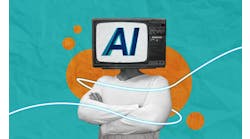I’ve mentioned more than once that I never networked or system integrated anything more complex than plugging in a laptop cable or an old stereo speaker. However, that statement isn’t accurate because I just completed my fifth 16-hour shift as an election judge in suburban Cook County, Ill., and that job parallels many of the plant-floors I’ve covered.
First, each neighborhood precinct gets a big metal box or voter supply carrier (VSC) with touchscreens, printers, cabling, scanners, uninterruptible power source (UPS) and other components. Second, there are never enough judges to go around, so we lack personnel like all brain-drained plants. Third, many components can be hard to set up and configure, and seem to temperamentally crash, recover network links, and go down again. Fourth, even though its mostly excellent, there are still a few gaps and misplaced instructions in Cook County’s more than 200-page election judge manual.
Get your subscription to Control's tri-weekly newsletter.
At one point, we even discovered that our ballot scanner was running on battery power, which was quickly dwindling despite being plugged in. We eventually traced the problem to an additional plug near the UPS that wasn’t plugged in. A classic, plant-floor scenario.
Despite these and other snags, once the system settled down, it performed flawlessly and tallied paper and electronic ballots for several hundred voters in our precinct, which is just one of thousands in Cook County.
By the way, for any onlookers inclined to bellyache about rigged elections when they don’t like the results, I’d encourage them to serve as judges. I’m sure ours and precincts nationwide could use the help, and it would allow suspicious individuals to assume some ownership of the process. I think they’d quickly realize there are so many passwords, safeguards and overlapping documentation that Chicago’s quaint reputation for “vote early, vote often” is impossible these days.
“I’ve often been told that water/wastewater processes and other control applications are taken for granted and even invisible until they’re unavailable. Well, the same goes for democracy.”
For example, votes on touchscreens are printed out on paper, scanned electronically, and both versions are preserved. Meanwhile, paper ballots are filled out manually, but they’re also scanned electronically, and those two versions are again preserved. This allows all formats to be compared if questions arise.
In another parallel with process control, software and digitalization are taking over more voting and tabulation functions. Previously, judges used bound paper volumes to check signatures, while touchscreens had paper tape accessories to confirm electronic ballots. Now, iPads confirm identities via barcodes, mostly on driver’s licenses, but they’re still attached to paper printers that spit out receipts that the judges carefully collect, resolve with each scanner’s tally, and turn in with our other documentation.
Just as in other fields and disciplines, the religion of paper persists in elections, healthcare, dry cleaning and elsewhere. I sympathize because I still do all my interviews with ballpoints on paper pads, which don’t require power sources that can go out or batteries that can die. However, I also recognize that I’m in the information business, not the paper-and-ink business, and software and other innovations that streamline these tasks—and do it securely—can improve the odds they’ll continue to get done.
Admittedly, just like registering and waiting to vote, many election-support chores can be just as tedious as implementing and maintaining arrays of I/O, Ethernet switches, PLCs, transmitters and other process control devices. However, just because some tasks are boring, it doesn’t mean they’re not essential and even sacred. I’ve often been told that water/wastewater processes and other control applications are taken for granted, and even invisible, until they’re unavailable. Well, the same goes for democracy, so we shouldn’t give it up too easily.





